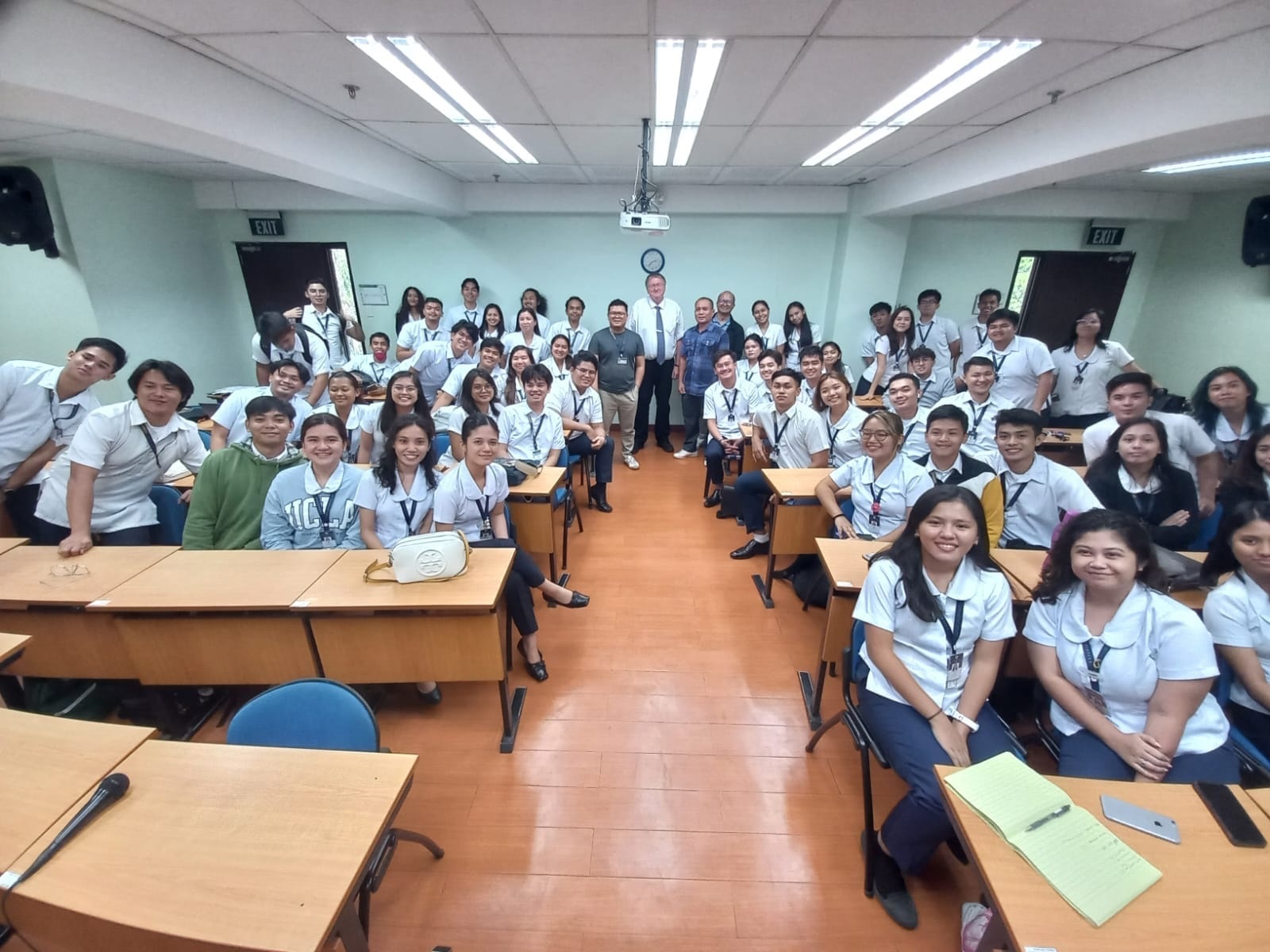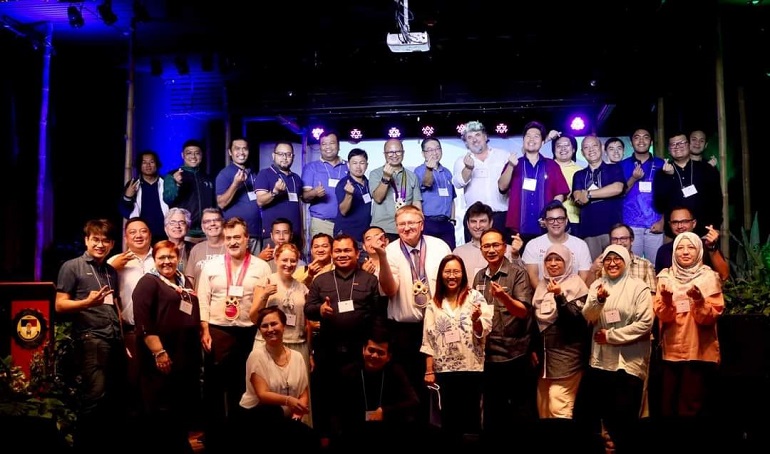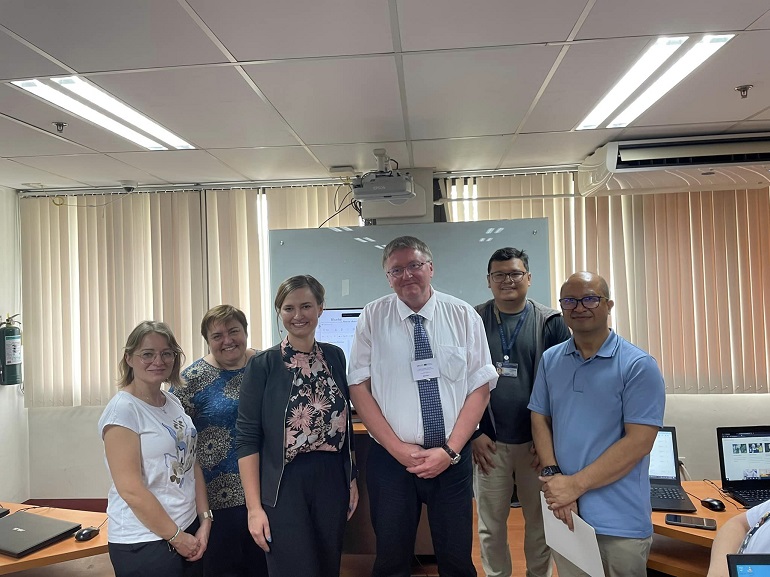Start - Aktualności - Scientists from the Silesian University of Technology visit the Philippines

Scientists from the Silesian University of Technology visit the Philippines
Scientists from the Silesian University of Technology conducted workshops and classes at Xavier University in the Philippines. The visit took place as part of the Erasmus+ project "Geomatics for Disaster Risk Reduction".
At the turn of January and February 2024, scientists from the Faculty of Mining, Safety Engineering and Industrial Automation and the College of Studies of the Silesian University of Technology stayed in the Philippines at Xavier University - Ateneo de Cagayan (XU PH).
The visit took place as part of the Erasmus+ project "Geomatics for Disaster Risk Reduction" (GeoDRR) - "GeoDRR Educational Workshops & Transnational Meeting Xavier University - Ateneo de Cagayan") and the short-term scientific and academic internship "Academic Internship at Xavier University".
The Silesian University of Technology is the leader of this project. Its goal is to create a new second-cycle study specialization "Geomatics for Disaster Risk Reduction" with the necessary laboratory facilities at six Asian universities. A course will be created to train specialists in forecasting, monitoring and analysing the course of natural disasters. The new specialisation will educate highly specialized staff prepared to forecast, monitor and analyse natural disasters, and in the event of their occurrence, manage them, with particular emphasis on ensuring the safety of victims and infrastructure.
The Erasmus+ project "Geomatics for Disaster Risk Reduction" has been implemented since 2021. 10 Partners are participating: six Asian universities from the Philippines, Malaysia and Cambodia, universities from Spain and Greece, as well as an IT consulting company from Luxembourg. The main coordinator of the Project from January 2022 is dr Eng. Krzysztof Tomiczek from the Department of Geoengineering and Resource Exploitation.

During his visit to Xavier University in the Philippines, apart from dr Eng. Krzysztof Tomiczek, the Silesian University of Technology was represented by: dr hab. Eng. Katarzyna Tobór-Osadnik, prof. of Silesian University of Technology from the Department of Safety Engineering, dr Eng Monika Żogała from the Department of Geoengineering and Resource Exploitation, dr Marta Matyjaszek from the College of Studies at SUT and remotely dr Eng. Krzysztof Słota from the Department of Geoengineering and Resource Exploitation.
During the first week of the visit, all-day workshops, training sessions and lectures prepared by European and Asian scientists "GeoDRR Educational Workshops & Transnational Meeting Xavier University - Ateneo de Cagayan" were held. Scientists from our university prepared lectures on geomatics, seismicity, scientific research methodology, threats and risk management, as well as GIS (Geographic Information System) and strategies for conducting higher education.
In the second week, during the "Academic Internship at Xavier University" internship, previously planned scientific and teaching activities as well as those promoting the Silesian University of Technology and the Faculty of Mining, Safety Engineering and Industrial Automation were carried out. Visiting employees of the Silesian University of Technology gave a series of lectures for students of Xavier University.
The stay was accompanied by intensive activities related to the implementation of the GeoDRR program at two Philippine universities, due to the critical and lengthy formal procedures.
Project Coordinator, dr Eng. Krzysztof Tomiczek conducted, among others: bilateral talks with the Rector of XU and the regional representative of the Ministerial Commission of Higher Education of the Philippines regarding the launch of GeoDRR studies, separate meetings with Project Managers of six Asian universities, talks with Project Managers from European universities: UniWa (Greece) and Alicante (Spain).
A short information report was prepared for the Project Officer about the most critical activities in the Project.
Due to the tight program of workshops and the intensity of activities, there was little time to learn about the life of the people of the Philippines. The island on which the city of Cagayan de Oro is located is not a tourist centre and, in general, tourists rarely visit this part of the Philippines. Thanks to this, it was possible to take a closer look at the everyday life of Filipinos, see natural beaches, take short hikes in the slightly mountainous, tropical forest-covered areas of Mapawa Nature Park, or look at the triculturalism of Northern Mindanao.









